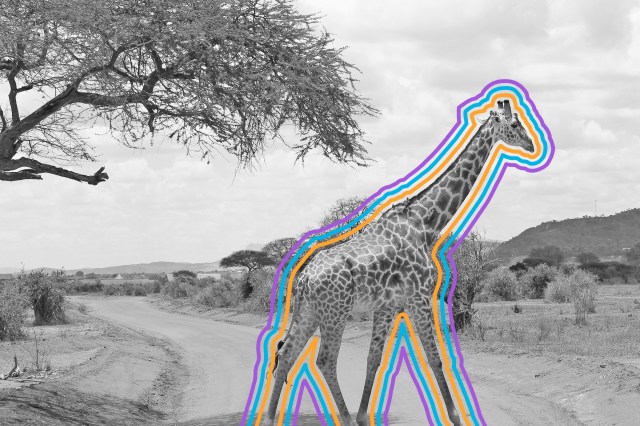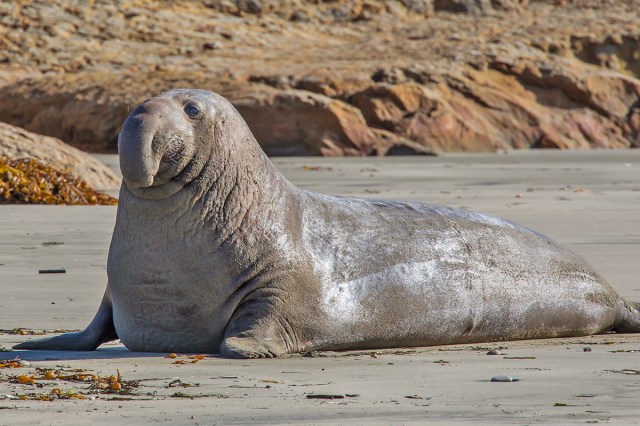
Elephant Seals
According to a 2023 study, elephant seals sleep for less than two hours a day when out at sea, which is among the shortest average total among mammals. They also don’t sleep for two hours straight; instead, they take several naps that often last for less than 20 minutes. Elephant seals tend to sleep at depths of around 1,000 feet for added security, to stay below potential predators.
The 2023 study helped answer some long-debated questions as to when elephant seals sleep. Study author and oceanographer Jessica Kendall-Bar told the National Science Foundation, “The dive records show that [elephant seals] are constantly diving, so we thought they must be sleeping during what we call drift dives, when they stop swimming and slowly sink… Now we’re finally able to say they’re sleeping during those dives.”
It’s worth noting that this shortened sleep pattern only occurs for about seven months out of the year. During breeding season — which usually lasts from November to March — elephant seals come ashore and sleep for more than 10 hours each day. This makes elephant seals unusual,” according to Kendall-Bar, as “they switch between getting a lot of sleep when they’re on land … and two hours or less when they’re at sea.”
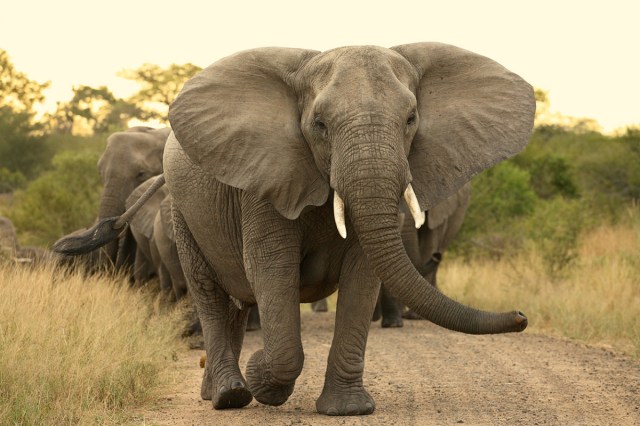
African Elephants
Leading up to the publication of a 2017 study on elephant sleep patterns, researchers tracked two free-roaming African elephants through Botswana. Their findings suggested these creatures tend to sleep for just two hours per day, often between the hours of 2 a.m. and 6 a.m. They also noted that the elephants went without sleep for as many as 46 hours in a sustained period of activity that may have had something to do with the threat of potential predation.
This isn’t to say elephants aren’t capable of sleeping for longer periods of time. For example, captive zoo elephants may sleep for between four and six hours, given the more secure environment. Wild elephants in larger family groups also tend to sleep for longer periods of time given their strength in numbers. The matriarch of a large herd may even sacrifice her own sleep in order to keep an eye out for predators, thus allowing others in the herd to rest. Basically, elephants may sleep for longer periods if there’s no perceived threat, though they often function on a mere two hours of sleep.
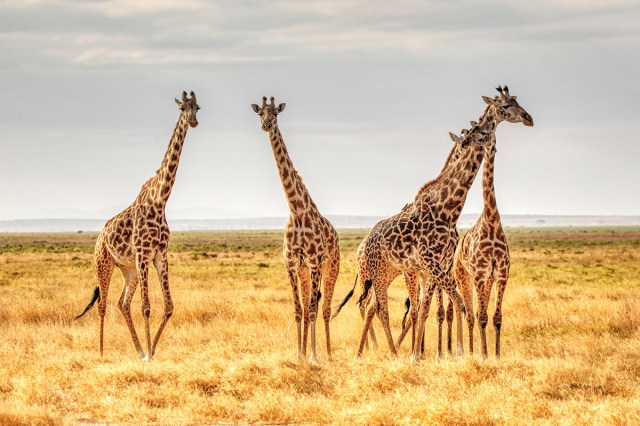
Giraffes
In the wild, giraffes sleep for as little as 30 minutes a day, often due to their need to remain alert in the face of potential predators. Free-roaming giraffes have even been observed sleeping while standing up in order to allow for a quick escape, and they’ve been known to lean against trees to support their long necks and bodies.
According to the San Diego Zoo, 30 minutes may actually be on the high end for wild giraffes, as some giraffes get as little as five minutes of sleep for every 24-hour period. This meager amount of sleep may come in the form of short bursts of one or two minutes rather than one prolonged sleep session.
Of course, much like other animals, a giraffe’s sleep schedule may change in captivity. For instance, it’s normal for zoo-based giraffes to sleep for around six hours a day, as there’s no immediate threat to their safety. Whether in the wild or in captivity, the majority of this sleep happens in the nighttime, though it’s often supplemented by brief afternoon naps.
More Interesting Reads
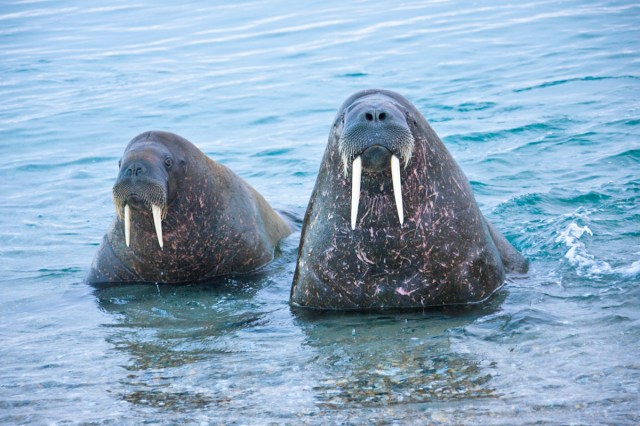
Walruses
The sleep patterns of an average walrus differ quite substantially depending whether the animals are on land or in the water. On land, walruses tend to be major sleepyheads, dozing off for anywhere between two and 19 hours at a time, according to a 2009 study. But walruses have unparalleled endurance while in the water and have been known to stay awake when swimming for as long as 84 straight hours.
Walruses are prone to experiencing a phenomenon known as unihemispheric sleep, which essentially means half the brain sleeps while the other half stays active, allowing walruses to enjoy prolonged periods of activity while still resting part of their brain.
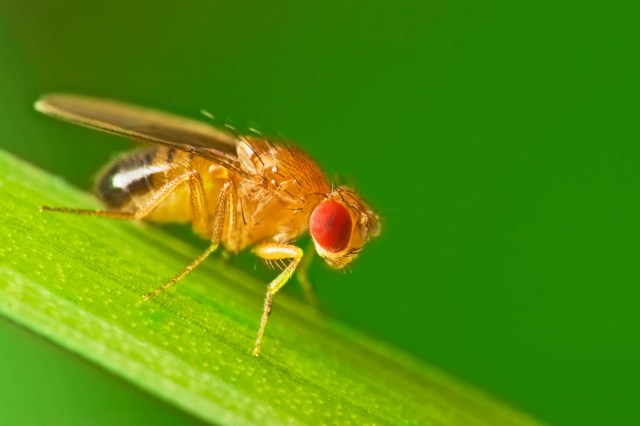
Fruit Flies
In 2019, researchers analyzed a group of fruit flies to learn more about the critters’ sleep patterns. As expected, some of the bugs slept for substantial periods of time — anywhere from five to 10 hours a day. However, the research team also noticed something unusual among certain fruit flies: Around 6% of female fruit flies slept for just 72 minutes a day, while some outliers slept for as little as four minutes.
To make matters more interesting, the flies that slept for shorter periods lived just as long as the flies that slept longer. While it’s been hard to make any conclusive claims based on the findings thus far, it raises some interesting questions about just how much sleep is truly necessary for fruit flies — and similar animals — to survive.
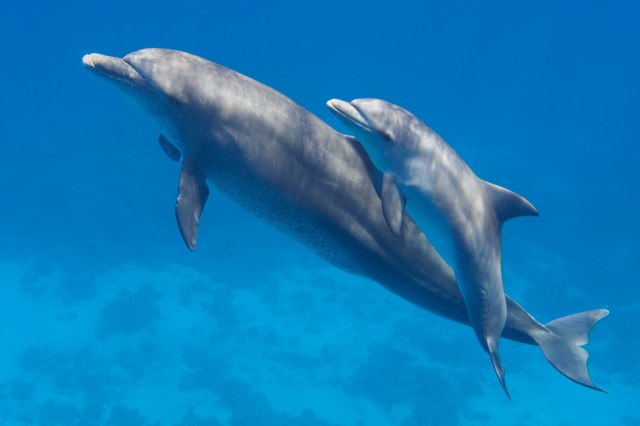
Newborn Bottlenose Dolphins
While mature bottlenose dolphins have relatively unremarkable sleep schedules, newborns tend to avoid sleep altogether. Most babies in the animal kingdom require sleep to develop, but that’s not the case for these marine mammals.
For the first month of life, bottlenose dolphins don’t sleep at all. Instead, the dolphins remain continually active and come up to the surface to breathe every three to 30 seconds. These findings come from a 2005 study led by researcher Jerome Siegel, who told New Scientist magazine, “The idea that sleep is essential for development of the brain and body is certainly challenged.”
Once dolphins reach maturity, they’re known to sleep for between five to eight hours per day, though the manner in which they sleep is quite different from what we’re used to as humans. Instead of becoming fully unconscious, they experience unihemispheric sleep, same as walruses. Even when “sleeping,” dolphins of many different species leave one eye open to stay aware of their surroundings, and half their brain rests while the other half functions.
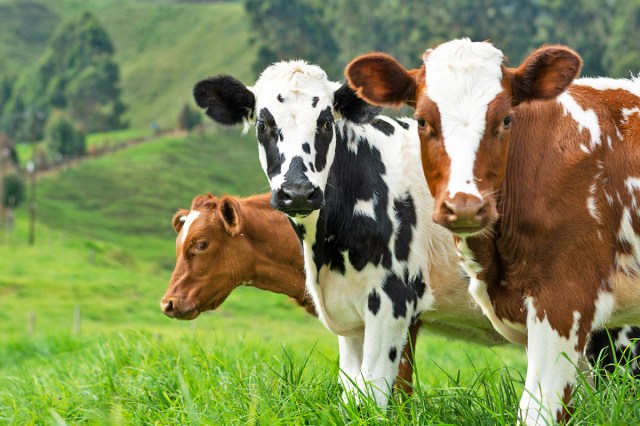
Cows
Cows tend to live a relaxing lifestyle; you’ve probably seen them grazing or lying in open fields. But when you see a cow sprawled out on the grass, odds are it’s simply drowsing — resting but remaining conscious — rather than outright sleeping.
According to a 1972 study, cows drowse for roughly eight hours a day. They only sleep for up to four hours each day, which is on the low end among mammals. For example, chimpanzees sleep 9.5 hours each day, dogs nap anywhere between 10 and 18 hours, and housecats average 12 to 16 hours of daily sleep.
Cows, however, generally manage around 45 minutes or so of REM sleep, or deep sleep. In a 2019 study of dairy cows, it was discovered that this sleep comes in three to five minute periods that add up over the course of the entire day.

